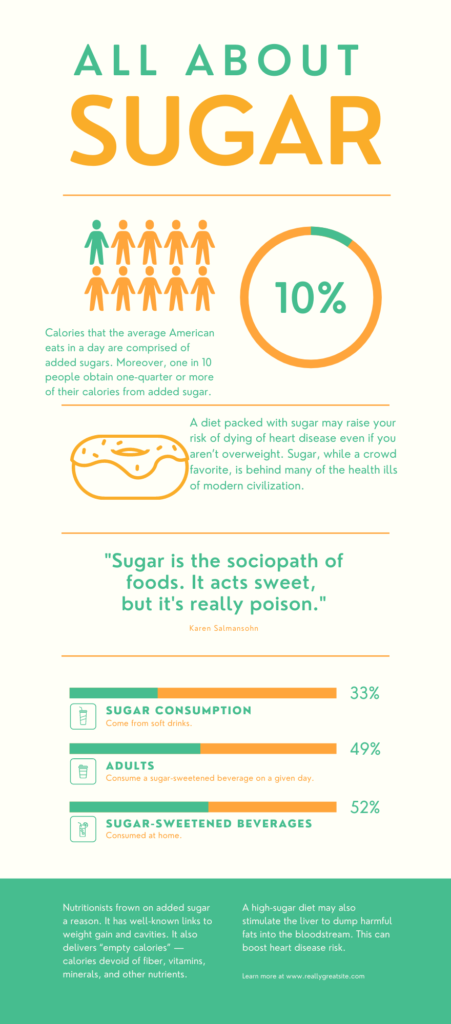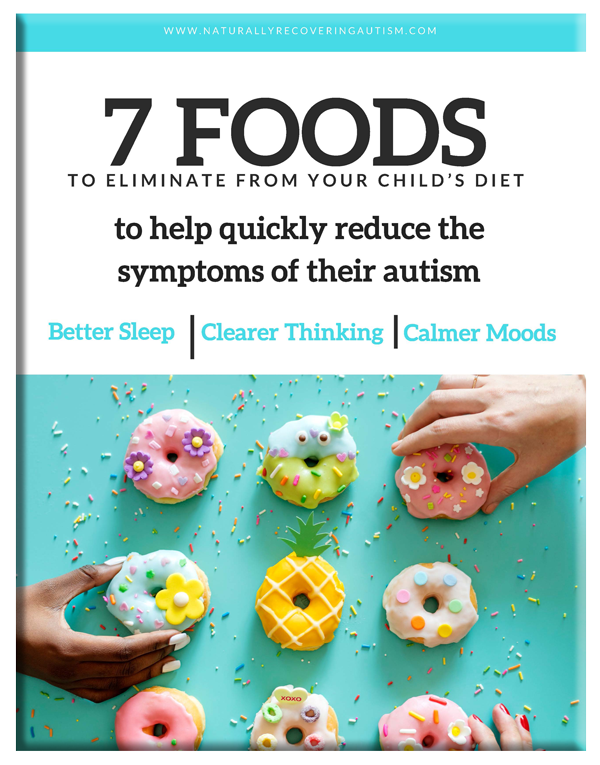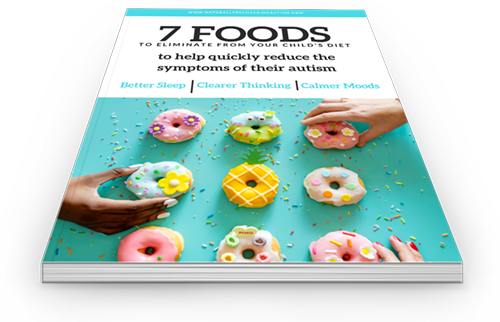Hypoglycemia is very hard on the adrenal glands. It is a challenge during the day, but also very hard on your system at night. During sleep, Candida feeds on your blood sugar. This stresses the body and the brain and your glucose levels are lowered significantly. Your brain relies on the right amount of glucose to function properly. Therefore, this stress during sleep overworks the adrenal glands due to this imbalance in blood sugar. When the adrenals become fatigued it also creates an imbalance in your thyroid gland.
When cortisol release becomes deregulated by the adrenal glands, it can result in adrenal fatigue. The adrenals will often release too much Cortisol. A common symptom is waking in the night, usually around 3:00 a.m.
When blood sugar drops, it causes low glucose levels in the brain. Thus, the brain’s energy supply is low. This causes the brain to secrete toxins such as glutamate. The result is negative behavior and mis-wiring in the brain. This is especially disruptive when the brain is developing and also causes adrenal problems.
Some symptoms of low blood sugar are hyperactivity, an inability to handle emotions, and aggressive behavior.
An imbalance of adrenal hormones can impair the body’s ability to grow and to recover from illness and injury. This imbalance also disrupts the body’s ability to build and utilize protein, or to perform what is known as protein synthesis.
Candida and Leaky Gut
Candida can attach itself to the wall of the intestines, creating holes that allow undigested foods and other toxins to enter the bloodstream. This is known as “leaky gut.”
It is essential to protect the gut and keep it healthy since it is the main source of our immune system, and it filters out toxins from the environment, including foods. Antibody producing cells line the intestines and secrete a substance called immunoglobulin A or IgA.
IgA protects the lining of the intestines by preventing bacteria from binding to it. This prevents the bacteria from passing through the intestinal wall and entering the bloodstream. Candida weakens IgA production.
Beware of using any non-steroidal, non-inflammatory medications (NSAIDS), like aspirin or amphetamines. They are known to weaken the gut lining. Cow’s milk should also be avoided or minimized since it is known to promote leaky gut.
If any food gets into the bloodstream intact, it can be very toxic to the entire system, especially the brain. This lowers resistance to infections and leaves us vulnerable to greater susceptibility of food intolerance and allergies. This is something we see commonly in children with autism.
Immune reactions of this sort cause the body to be in a continual fight for health. When the immune system is constantly in the “on” position, it can become depleted, leaving us even more vulnerable to infection disease and autoimmune illnesses. It also depletes the body’s serotonin levels, which can contribute to anxiety, depression, and sleep disorders.
Some examples of illnesses caused by Candida and larger molecules passing through the gut lining are rheumatoid arthritis, asthma, food allergies, celiac disease, cystic fibrosis, skin disorders such as eczema, and pancreatic dysfunction, which reduces the body’s ability to produce enough enzymes needed for digestion of food and for many necessary cellular reactions.
Stress, too many sugars (including bad carbohydrates), fruit, processed food, and alcohol can all repopulate the “bad” bacteria. Just when you think everything is under control, it comes back. Yeast is ongoing if you let it be.
Once the holes in the gut heal, the parasites are eradicated, and the good bacteria are restored to balance, the persons’ susceptibility to these issues diminishes. However, if parasites are detected, the Candida diet will help to eradicate many of the pathogenic bacteria, but the parasite issue must still be addressed.
Hypoglycemia or low blood sugar can trigger many unhealthy reactions in our bodies. Excess insulin secretion can contribute to many severe disorders including allergies, asthma, alcoholism, cancer, heart disease, chronic fatigue, depression, diabetes, and more.
Parasites and leaky gut can contribute to hypoglycemia or low blood sugar. This is just one more reason to eradicate any parasites and recover gut health. Hypoglycemia causes stress on the body, which reacts by triggering the adrenal gland to release the stress hormone cortisol. The stress hormone rises and registers stress to the brain. Insomnia can be associated with this at night as your body begins to have more trouble going longer periods of time without food to keep the blood sugar balanced.
How To Help Balance Blood Sugar Levels
The remedy to restoring blood sugar back to balance is to eat.The best choice would be a healthy snack or meal including protein and plant-based carbohydrates. Complex, or plant-based carbohydrates such as whole grains, vegetables, and fruit do not affect your body in the same way as refined carbohydrates such as sugar, pasta, cookies, and crackers. With this said, remember that all grains are carbohydrates. This means they break down in your body to become sugars. Wheat breaks down into sugar faster than other grains. The wrong fruit or too much fruit can give the same response as sugar. Eating before you get really hungry is the key to keeping blood sugar in balance. I carry almonds with me to have a healthy protein source available.
Candida diet
While eradicating Candida, we want to do our best to make our body the least hospitable environment possible. Certain foods should be avoided at first, about two to four months, although individuals vary. Some may need to be on the more strict diet longer than others. Symptoms are your best guide; however, it is important to continue the diet for additional weeks beyond just feeling good.
I know that people can get very emotional about their food. When it comes to our kids, we think changing their diet must be impossible, but it’s not. Do your best to follow from the food lists below. After physical and emotional symptoms subside. Never overload his diet with refined sugars and carbohydrates; they are not healthy choices and can cause inflammation and Candida to come back.

Always eliminate soda and limit juices, refined sugars, and carbohydrates. Reduce fructose in your diet, even from fruits. Completely avoid high fructose corn syrup. Increase your amounts of good oils such as coconut, olive, and avocado. Get enough protein from whole food sources such as nuts, seeds, eggs, grass-fed meat, organic poultry, and raw vegetables (if tolerated by digestion).
Additional contributors
Gluten allergies are commonly related to Type 1 diabetes.
Stay away from the standard American diet of sodas, chips, processed foods, and those sprayed with pesticides or grown with antibiotics and hormones.
Fructose promotes insulin resistance and fat storage. This can be dangerous to your health. Be sure to avoid foods high in fructose, especially high fructose corn syrup.
Get your free guide to the top 7 foods to eliminate today.
Supplements That Help To Balance Blood Sugar
Be sure vitamin D3 levels are adequate. One of the leading researchers in vitamin D, Dr. Michael Holick, has found that, “Children who receive vitamin D supplements from the age of one and on had an 80% decreased risk of developing Type I diabetes” (www.mercola.com).
The omega 3 fatty acid, docosahexaenoic acid (DHA), reverses insulin resistance. It is also known to naturally activate cell receptors and gene activation that affect blood glucose levels. The medical industry uses drugs to activate these proteins for the prevention and treatment of diabetes. DHA is the effective, natural, and safe way to do this.
Berberine balances blood sugar, increases good gut bacteria, gut function and metabolism.
Low levels of magnesium can cause leptin and insulin resistance.
Learn about possible issues with magnesium and sulfation here.
Chromium picolinate is mineral that is helpful in balancing blood glucose levels, reducing hunger cravings and improves the metabolism of carbohydrates. It can be extremely helpful with sugar cravings. Studies have found that 500 mg twice per day reduces blood sugar in adults, children may need half that. Taken in the afternoon is helpful since it is when we usually have our greatest decline in blood glucose levels. Chromium deficiency is also related to Type II diabetes.
As beneficial as chromium picolinate is in keeping blood sugar in balance, it is wise to regulate the dosage as too much chromium picolinate can be hard on the liver.
COQ10 or ubiquinol decreases blood glucose levels by over thirty percent, increases metabolism, increases energy to assist mitochondria, is an antioxidant, and increases the level of glutathione inside of the cells.
Zinc also helps to stabilize insulin.
Cinnamon
Peppermint
How To Assist Stabilizing Blood Sugar with Diet
Protein is a great choice because it is low on the glycemic index. When we eat protein, it takes a longer time for our body to break it down. The higher nutrient content combined with a low GI will also assist in satiation. Our body will be fed a source of food it can utilize and one that takes much longer to digest. This keeps us feeling full longer and does not have a negative impact on blood sugar.
It is vital to feed your children small amounts of protein throughout the day to minimize their body’s cravings for carbohydrates, the very food that converts into sugar and feeds the Candida. Foods higher on the glycemic index also have a greater likelihood of creating hyperactivity and then a “sugar crash” with loss of all energy within an hour or two after consumption. We do not want to use protein in excess as too much can be hard on the liver. Small amounts that are spread out will suffice to keep blood sugar balanced.
Before bed…
Balancing Blood Sugar To Help Sleep
To help improve sleep, experiment with feeding your child a snack at bedtime, one that has some protein with fat and a little carbohydrate such as part of a protein bar, or almond butter on a slice of apple. Give a snack again if your child wakes up in the middle of the night. Here’s why it could help with sleep.
Almost every child on the autism spectrum has candida overgrowth, often picked up from mom in the womb. It is a major contributor to the development of autism.
Candida eat sugar in the blood at night, and then the brain doesn’t have enough food (blood sugar feeds the brain). When the brain gets hungry, it signals the adrenals to tell the liver to release more glucose into the blood. The adrenals have now been doing this since birth, so they’ve become worn out and fatigued. They can no longer do this efficiently, so the brain stays hungry. As it needs food, it wakes your child up to try and get some.
This snacking will provide the additional glucose that it needs. The protein and fat slow down the digestive process so the glucose is released over time, instead of all at once, and will last a longer time. This snacking helps many to improve sleep a lot, along with the Restful Sleep Elixir. It may even help you if you have sleep issues.
The proper diet is absolutely crucial!
Please get my free downloadable guide now to the top 7 foods to eliminate from your child’s diet that contribute to his inflammation and leaky gut syndrome.











